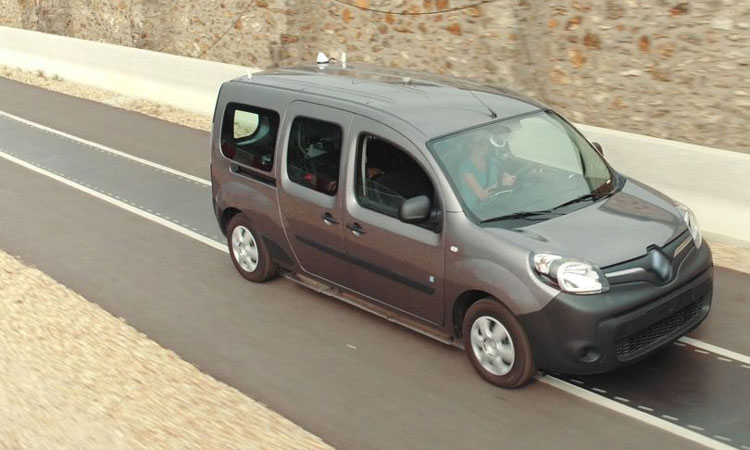Qualcomm electric vehicle system to charge car as it drives
Qualcomm has introduced a system, the Dynamic Electric Vehicle Charging (DEVC), that can charge a car while it’s travelling at ‘highway speeds’. The technology is integrated into a specially-built track, cutting out the need for electric cars to stop at charging stations.
The breakthrough could pave the way for the building of more roads capable of charging cars, and an eventual move to other electric vehicles.
Based on the Qualcomm Halo Wireless Electric Vehicle Charging technology (WEVC), the DEVC tech can charge two vehicles on the same track simultaneously. What’s more, vehicles can pick up charge while travelling forwards and in reverse.
The technology was demonstrated at the 100m FABRIC test track at Satory Versailles, France, where the two vehicles were able to charge at up to 20kW while travelling at high speed.
The pseudo-acronym FABRIC stands for FeAsiBility analysis and development of on-Road chargIng solutions for future electriC vehicles and is a €9m (£7.6m) project, mostly funded by the European Commission. Built by VEDECOM, the FABRIC test track was fitted with charging tech by Qualcomm, while VEDECOM and Renault worked together to equip two Renault Kangoo vehicles with the receiving part of the technology.
“The installation of one of the world’s first DEVC test platforms has provided us with a unique test facility and we look forward to expanding our expertise with the future testing,” said VEDECOM CEO Luc Marbach.
The FABRIC project
The FABRIC project began in January 2014 and is scheduled to continue until December 2017. The initiative is being undertaken by 25 organisations from nine European countries, including car makers, suppliers, and automotive research groups.
It is hoped the breakthrough in dynamic charging will make electric vehicles a far more attractive option for car users.
“We see dynamic charging as a great vision to further enhance the ease of use of EVs (Electric Vehicles), thus the accessibility of EVs for all,” said Eric Feunteun, Electric Vehicle Program Director, Groupe Renault.
The aim of the current project is to investigate how the range of electric cars ban be boosted.
“The combination of a global team of expert engineers and Qualcomm Halo technology, which covers all aspects of WEVC systems, irrespective of the magnetics used, has enabled us to really push the boundaries of the possible and outline our vision for future urban mobility,” said Steve Pazol, Vice President and General Manager for Wireless Charging at Qualcomm.



Comments are closed, but trackbacks and pingbacks are open.